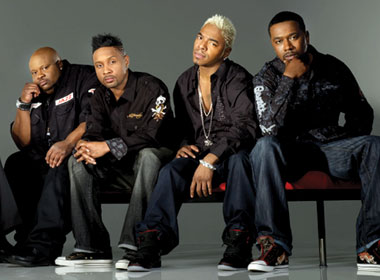
As this publication immerses itself in the celebration of its 75th anniversary, it occurred to me the large number of popular songs that are remakes, although the public is very often unaware of that fact.
Being of a certain age, I often find myself educating younger people on the origins of songs, and in some cases, the songs go way back.
For example, everyone associates the classic love ballad “At Last” with Etta James. She had a major hit with it in 1961 and it has been her signature song ever since. However, “At Last” dates back to 1941. It was written for a film titled “Orchestra Wives.”
In 1995, the Temptations, with Ali Woodson on lead, caught everyone’s attention with “Some Enchanted Evening,” featuring the catchy refrain “Never let, never, never let her go.” One of my coworkers, who loved “Some Enchanted Evening,” thought it was a new song. She was shocked when I told her it was first heard in 1949 in the stage musical “South Pacific.”
On that same album (“For Lovers Only”) Theo Peoples delivered a passionate, powerful rendition of “Night and Day,” a song that dates all the way back to 1932. The new version was used in the 2000 film “What Women Want” starring the now beleaguered Mel Gibson.
And, of course, both Bette Midler and En Vogue reached back to 1941 and the Andrews Sisters for “Boogie Woogie Bugle Boy.”
MOVING UP to more recent years, one of Luther Vandross’ most loved songs (from 1984) is “Superstar,” with the unforgettable line, “Don’t you remember you told me loved me, baby?”
However, the Carpenters had the first smash hit in 1971, more than a decade before Vandross recorded it. But even they were not the first to sing that song. “Superstar” was originally recorded by Delaney & Bonnie, but became popular on a Joe Cocker album, “Mad Dogs and Englishmen,” with Rita Coolidge doing the vocal, in 1970.
The Fugees (Lauryn Hill, Wyclef Jean and Pras Michel) had their popularity sealed in 1996 with “Killing Me Softly.” But few of their young fans knew that “Killing Me Softly With His Song” was one of Roberta Flack’s biggest hits, reaching No. 1 in 1973. (The Fugees shortened the title.)
Another example of that sort of thing is “The Love We Had (Stays on My Mind).” The kids and young adults who loved Dru Hill made it a medium-sized hit in 1999, with no realization that it actually dated back to 1971 when it was a Top 10 hit for the Dells.
I actually had to prove that to a 14-year-old — who was also insisting that Dru Hill wrote the song — by making a photocopy of the record label!
WHEN MICHAEL JACKSON was very young, he and his legion of fans were in “teenybopper heaven” with the exuberant hit “Rockin’ Robin.” Their parents and older siblings knew that Bobby Day had the original hit with that novelty song in 1958.
Some people know that “Respect” in its original form was by its composer, Otis Redding. Of course, it became Aretha Franklin’s signature song. But another of her No. 1 hits, “Until You Come Back to Me (That’s What I’m Gonna Do),” can also be traced back to another artist.
Stevie Wonder recorded and co-wrote the song in 1967 — six years before Aretha sang it — but for whatever reason, Motown did not release it. It was not heard by the public until Motown released a three-album set titled “Stevie Wonder Anthology” in 1977.
One of the greatest singers of all time, and yet among the least known today, is the late Roy Hamilton. His strong, resonate, passionate voice was used effectively on hits like “You’ll Never Walk Alone” and “Unchained Melody” in the 1950s.
Isaac Hayes revived Hamilton’s “Don’t Let Go” in 1979 and missed the Top 10 by only one digit. Too bad it didn’t generate new interest in Roy Hamilton.
A REMAKE with a very odd history is “Sukiyaki,” a lovely No. 1 hit for for A Taste of Honey in 1981. You could probably count on one hand the number of people, especially Black people, who knew that a Japanese singer by the name of Kyu Sakamoto had the original hit with “Sukiyaki,” in Japanese. It was No. 1 in 1963.
The strange thing is that A Taste of Honey’s English lyrics have nothing to do with the original Japanese lyrics. The group just used the melody and kept the title.
Speaking of beautiful songs, “Let It Be Me” by Betty Everett and Jerry Butler (1964) is one of the most loved and has been sung by many other artists over the years, including the Sweet Inspirations, Willie Nelson, Nina Simone and Glen Campbell. The Everly Brothers had the first hit in 1960, but the song was published in 1955.
Few and far between are the people aware of the fact that Whitney Houston’s No. 1 hit from 1990, “All the Man That I Need,” was originally recorded by Sister Sledge in 1982. However, their version was only a minor hit, barely scraping the Top 50.
Robert Knight is a singer who has become a footnote in music history, but he had the original “Everlasting Love,” that found its way into the national Top 20 in 1967. Many years later, 1974 to be exact, Detroit’s own Carl Carlton had an even bigger hit with that song — a more lively rendition — and today he is the artist that most of the public associates with “Everlasting Love.”
“Someday We’ll Be Together” (1969-70), the final single by Diana Ross & the Supremes and one of the finest records ever made, was first recorded by an essentially unknown duo, Johnny & Jacky, on the small Tri-Phi label in 1961.
“Johnny” was Johnny Bristol, who, of course, went on to become a very successful producer, songwriter and singer.